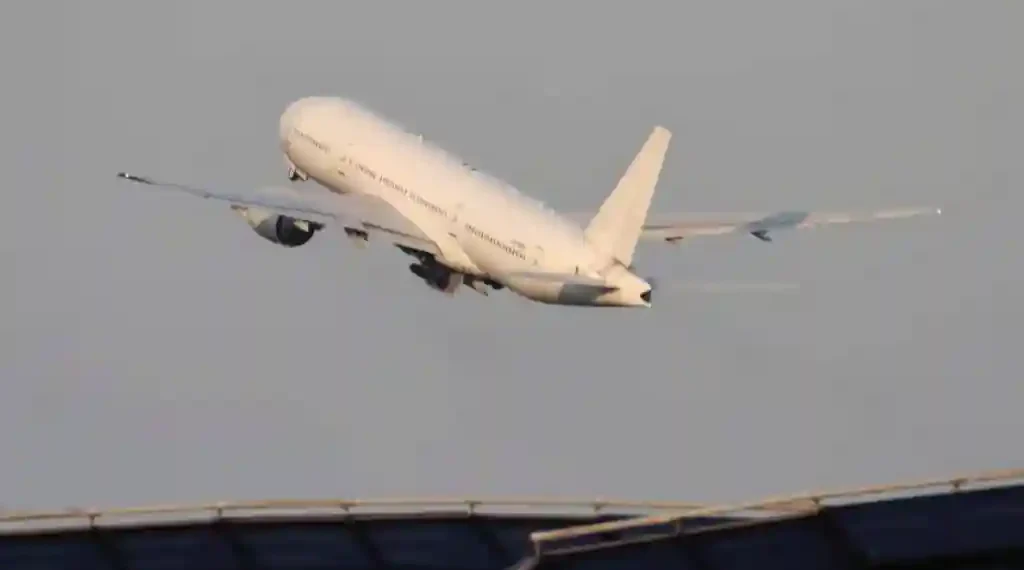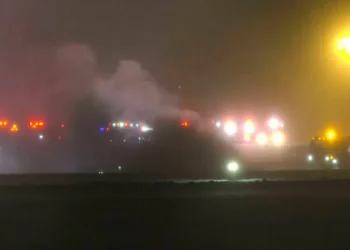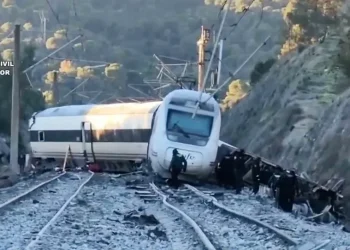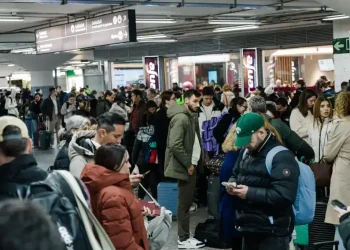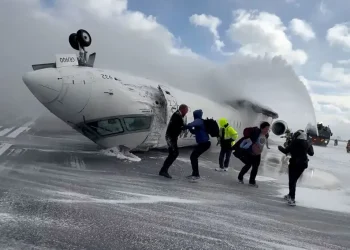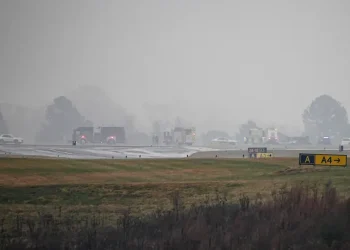Russia begins direct commercial flights to North Korea as ties deepen
July 28, 2025 – 18:30 EDT
Russia has launched a monthly commercial flight route connecting Moscow and Pyongyang, marking a significant development in the growing relationship between the two countries. The move comes as both nations deepen economic, political, and military ties amid global tensions and international sanctions.
Moscow-Pyongyang route opens with first Nordwind Airlines flight
The inaugural flight on this new route departed Sunday from Sheremetyevo International Airport in Moscow, operated by the Russian airline Nordwind. The flight carried over 400 passengers and marks the first direct commercial connection between the Russian capital and North Korea’s capital, Pyongyang, in decades.
According to Russia’s Ministry of Transport, this new air link will operate once a month to accommodate demand. The announcement did not include plans to increase frequency, but officials indicated that the service may expand depending on interest.
Russian tourism push to North Korea’s Wonsan resort
The launch of the new route follows a visit earlier this month by Russian Foreign Minister Sergey Lavrov to North Korea’s Wonsan-Kalma coastal resort, a flagship tourism development project led by North Korean leader Kim Jong Un.
Lavrov met with Kim during the visit and pledged to promote Russian tourism to the resort, which is designed to accommodate up to 20,000 visitors. Located on North Korea’s eastern coastline, the Wonsan-Kalma project has been under development since 2013 and is part of Kim’s long-term strategy to boost tourism revenue and diversify the country’s heavily sanctioned economy.
North Korean authorities have promoted the resort as a symbol of modern luxury and a safe destination for international travelers. However, despite some easing of pandemic-era restrictions, North Korea has yet to fully reopen to international tourism. The country still maintains tight controls on travel and has not publicly confirmed a timeline for welcoming foreign tourists on a large scale.
Gradual reopening of North Korea’s borders
This latest flight between Moscow and Pyongyang is part of North Korea’s cautious post-pandemic reopening strategy. The country sealed its borders in early 2020 to prevent the spread of COVID-19 and maintained strict entry restrictions for years.
While diplomatic visits and limited cargo trade have resumed, international travel into North Korea remains highly restricted. Flights between Vladivostok and Pyongyang, which had been suspended during the pandemic, were reinstated in 2023, primarily for government personnel, aid deliveries, and tightly controlled delegations.
Analysts suggest that the new monthly route from Moscow could serve both symbolic and practical purposes, helping to normalize ties and increase engagement at a time when North Korea faces widespread international isolation.
Russia and North Korea strengthen bilateral ties
The flight service highlights a broader trend of strengthening political, economic, and military cooperation between Russia and North Korea.
Over the past two years, the two countries have expanded their relationship significantly, driven in part by mutual opposition to Western sanctions and increasing geopolitical alignment. Western governments have accused North Korea of supplying weapons and military personnel to support Russia’s war in Ukraine — a claim both Moscow and Pyongyang deny, but which has been supported by satellite imagery and intercepted communications, according to U.S. intelligence sources.
Recent reports from U.S. and South Korean officials suggest that North Korean arms have been used on the frontlines in Ukraine, including artillery shells and short-range ballistic missiles.
Moscow, in turn, has provided diplomatic cover and economic support for Pyongyang at the United Nations, frequently vetoing or blocking U.S.-led resolutions against North Korea’s missile and nuclear programs. Russia has also reportedly offered food and energy aid to help North Korea deal with ongoing shortages exacerbated by sanctions and trade limitations.
Strategic implications and international response
The renewed air link between the two capitals is likely to draw scrutiny from the United States, South Korea, and Japan, all of whom have expressed concern over increasing cooperation between Moscow and Pyongyang.
A State Department spokesperson in Washington told reporters on Monday that the U.S. is “closely monitoring developments between Russia and North Korea” and views increased coordination as a potential threat to regional stability.
Meanwhile, South Korea’s Ministry of Unification issued a statement condemning “any measures that seek to normalize or embolden North Korea’s militarized regime under the guise of economic development or tourism.”
Despite such warnings, both Russia and North Korea appear committed to continuing their partnership. Analysts say the deepening alliance may offer each country strategic advantages: Russia gains access to additional military resources and diplomatic support, while North Korea benefits from trade, aid, and legitimacy on the international stage.
Outlook: Will more routes follow?
While the new Moscow–Pyongyang route is currently limited to once a month, the success of the flights could open the door to additional air links or increased frequency.
As of now, Nordwind Airlines has not confirmed future plans to add more destinations, but the flight marks a rare example of commercial connectivity for a country that remains among the most isolated in the world.
Observers will be watching closely to see whether this route marks a turning point in North Korea’s economic outreach, or simply a political gesture amid deepening ties with Russia.
This article was rewritten by JournosNews.com based on verified reporting from trusted sources. The content has been independently reviewed, fact-checked, and edited for accuracy, neutrality, tone, and global readability in accordance with Google News and AdSense standards.
All opinions, quotes, or statements from contributors, experts, or sourced organizations do not necessarily reflect the views of JournosNews.com. JournosNews.com maintains full editorial independence from any external funders, sponsors, or organizations.
Stay informed with JournosNews.com — your trusted source for verified global reporting and in-depth analysis. Follow us on Google News, BlueSky, and X for real-time updates.
